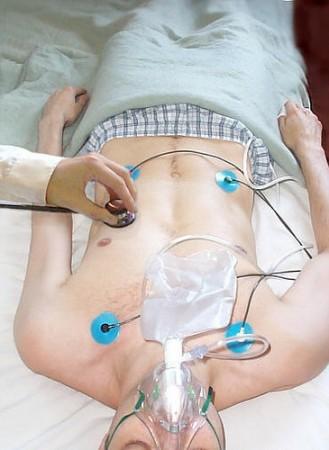
A simple scan can help predict risk of getting a heart attack, researchers reveal.
The non-invasive imaging technique was developed by a team of researchers from the University of Edinburgh in the UK. The test works by identifying fatty build-up inside the arteries that supply blood to the heart and ruptures, BBC reported.
Elasticity of the arteries is crucial for keeping the heart healthy. The build-up of fatty deposits in the artery walls leads to thickening of the walls, narrowing and damaging its elasticity and thus reducing flow of blood through them. The plaque can sometimes rupture, increasing the risk of blood clots (thrombus).
The researchers combined PET and CET scanners and used radioactive tracers to develop the test. Researchers said that it is the first test that helps detect heart problems early by highlighting the dangerous plaques in the arteries. The findings bring hope as the equipment in the scan is widely used in majority of the teaching hospitals in the UK. Until date, it was used to detect cancer tumour.
The researchers proved the effectiveness of the test on 40 high risk patients who went through a heart attack in the recent past. Interestingly, in most of the cases (37 out of 40) the scan successfully detected the plaque that contributed to the attack in the patients. "I suspect not all plaques detected will cause a heart attack, but it could be useful for identifying high risk patients who need aggressive therapy," cardiologist Dr Marc Dweck told the BBC.
Researchers hoped that their findings will help save valuable lives across the whole world. "Heart attacks are the biggest killer in the Western world and there is no prior warning, the first time people know about heart disease is when they have a heart attack," Dr Dweck, added to BBC. "If we can treat and stabilise the plaques then we might be able to prevent heart attacks and stop people dying."
The study has been published in The Lancet.













!['It's not Mumbai traffic, it's air traffic': Suriya apologises to Mumbai media after paparazzi yelled At Him for making them wait for hours [Watch]](https://data1.ibtimes.co.in/en/full/806234/its-not-mumbai-traffic-its-air-traffic-suriya-apologises-mumbai-media-after-paparazzi.jpg?w=220&h=138)



